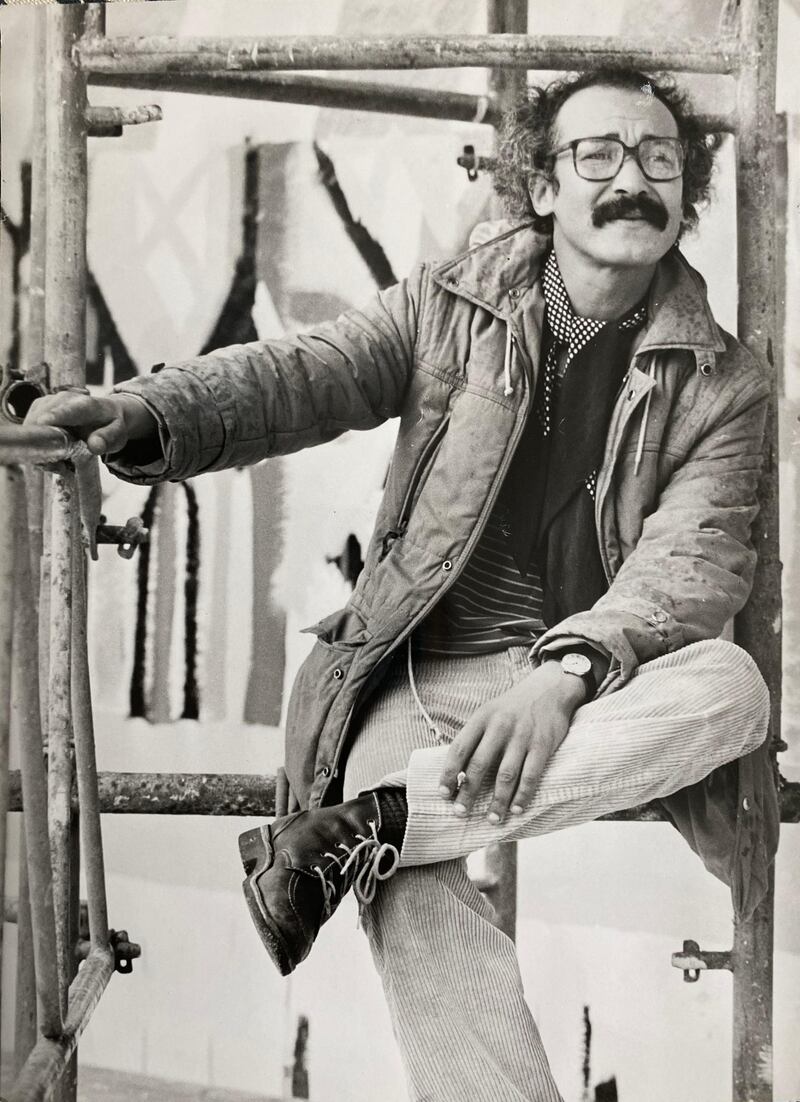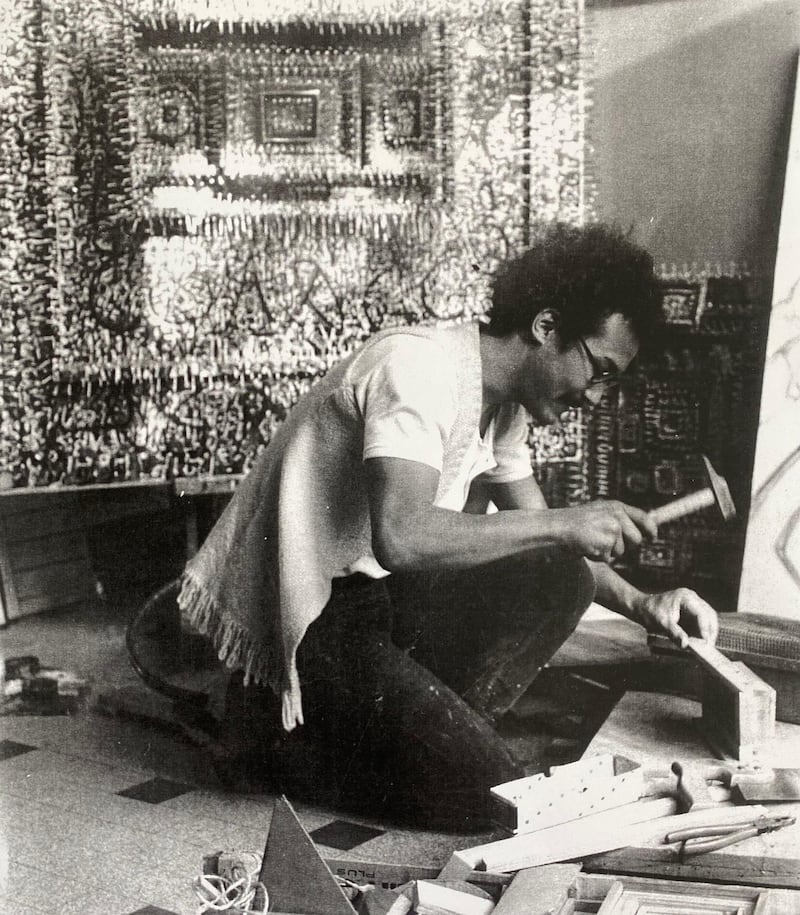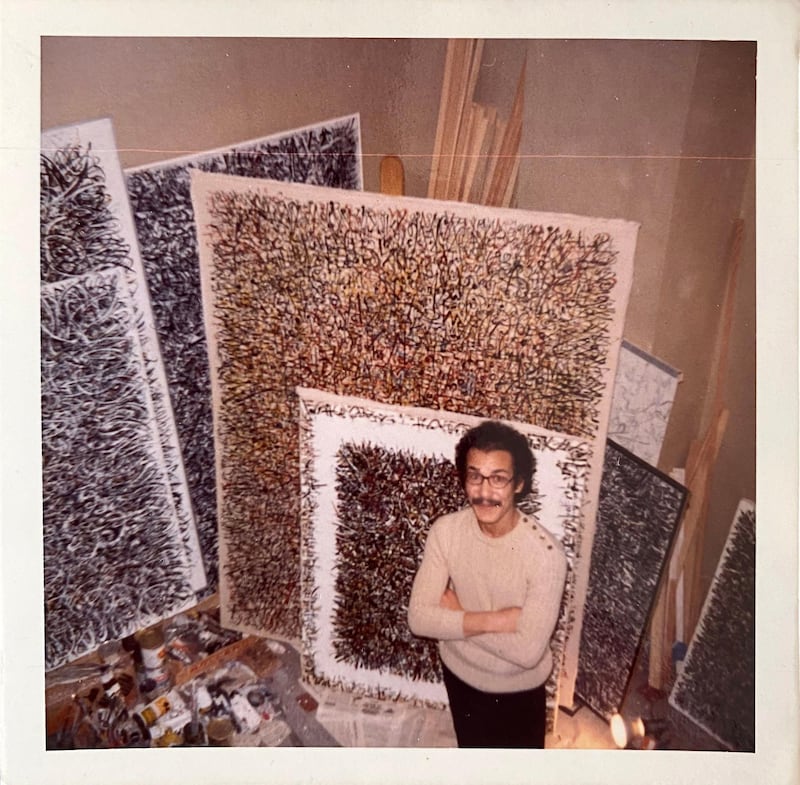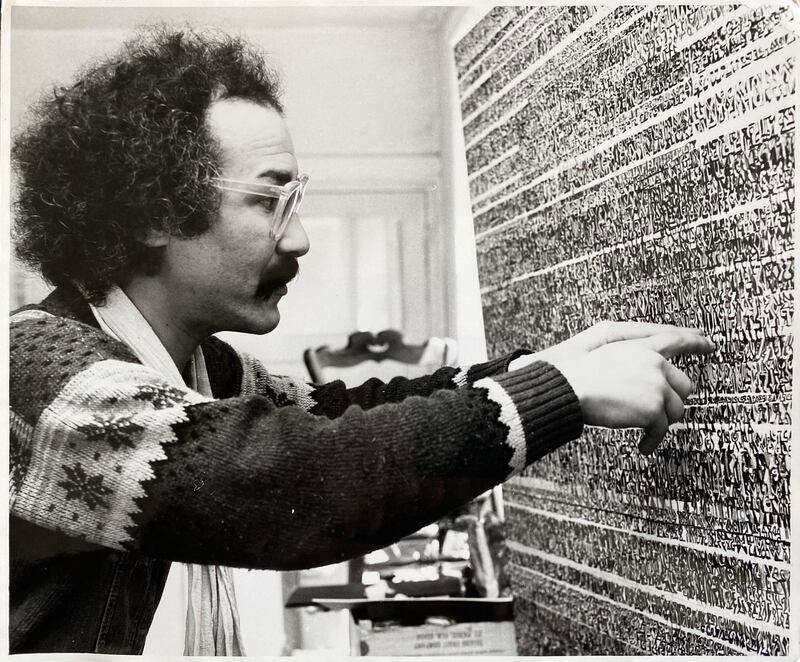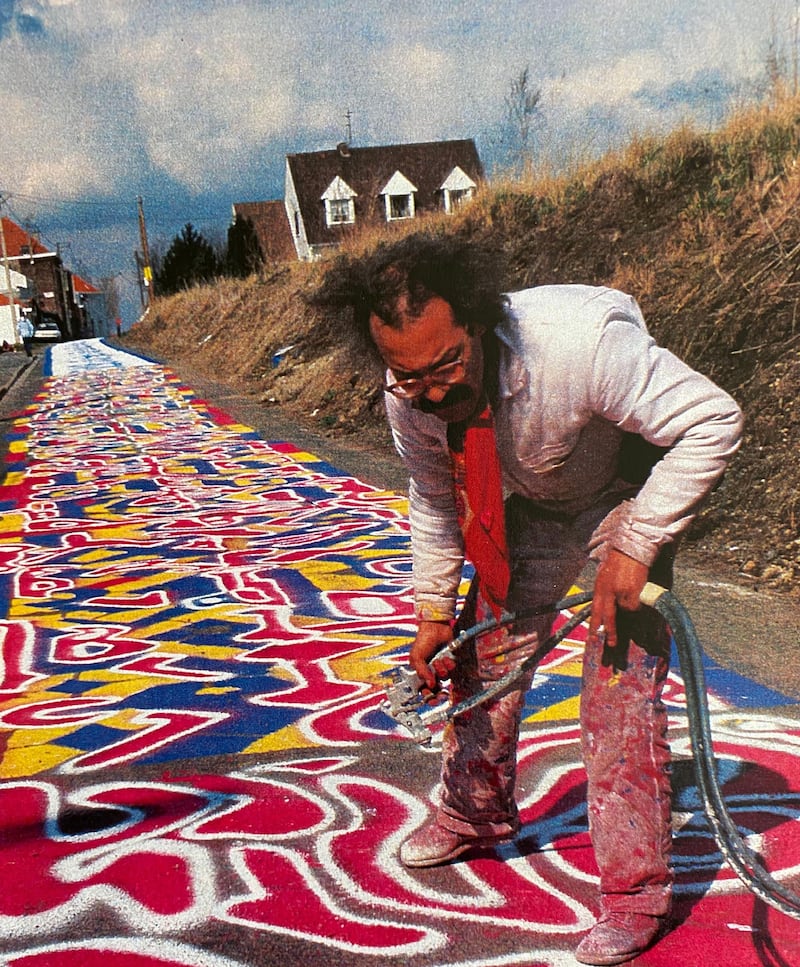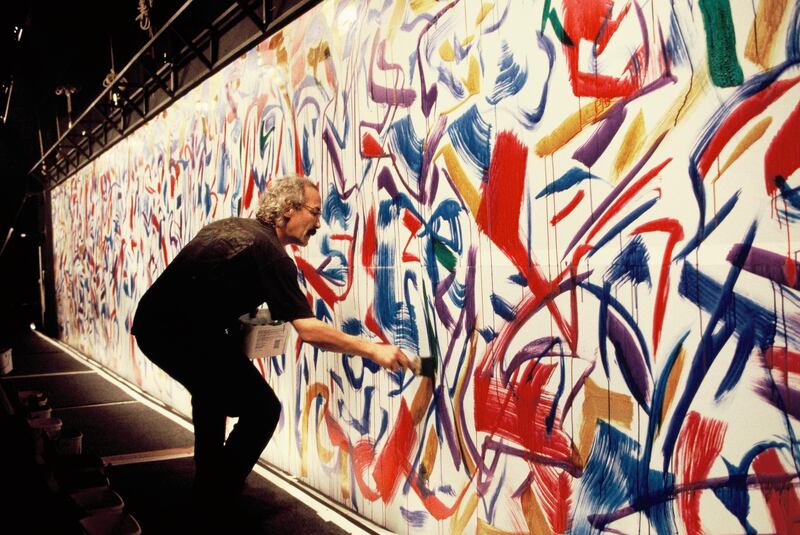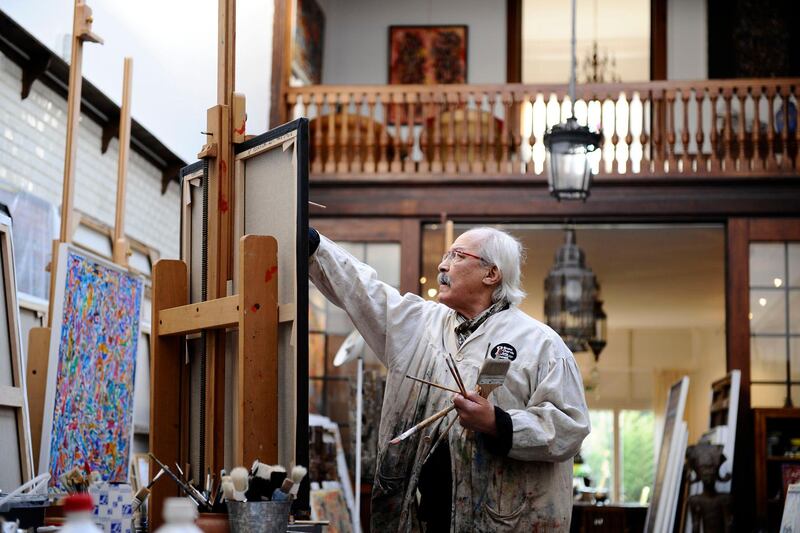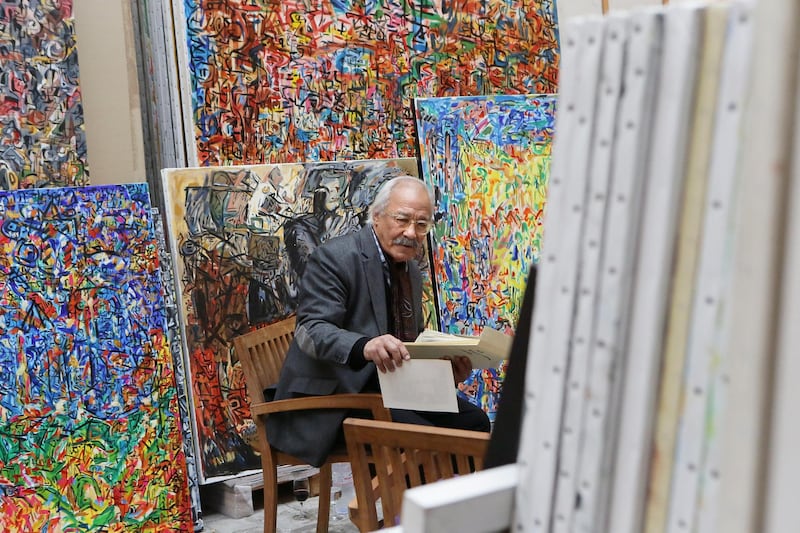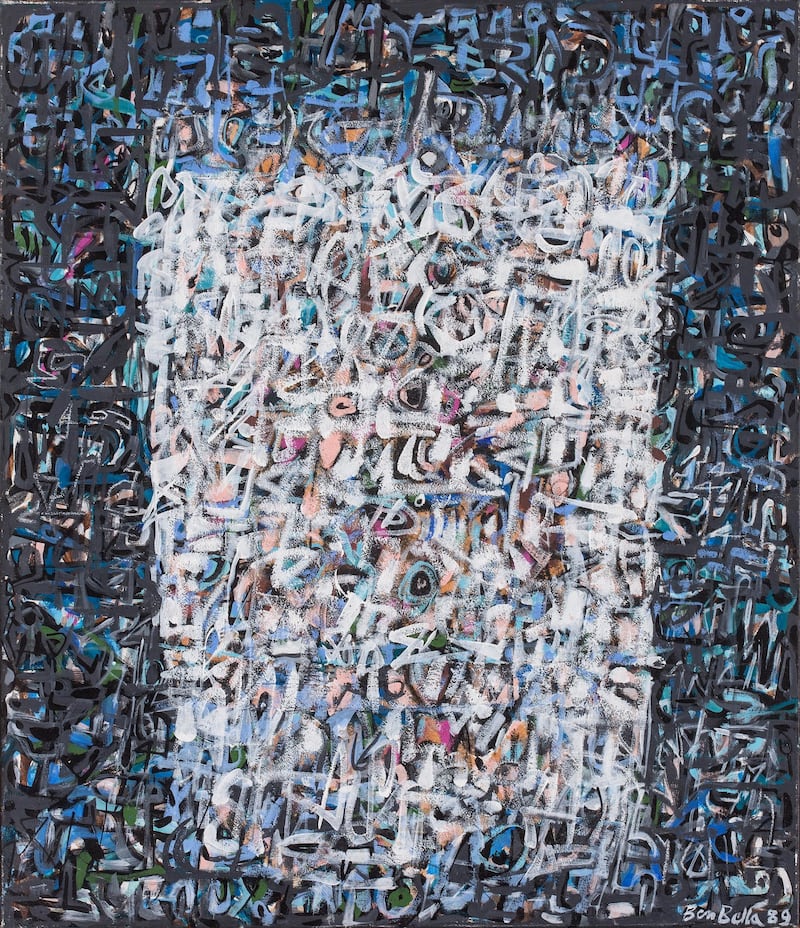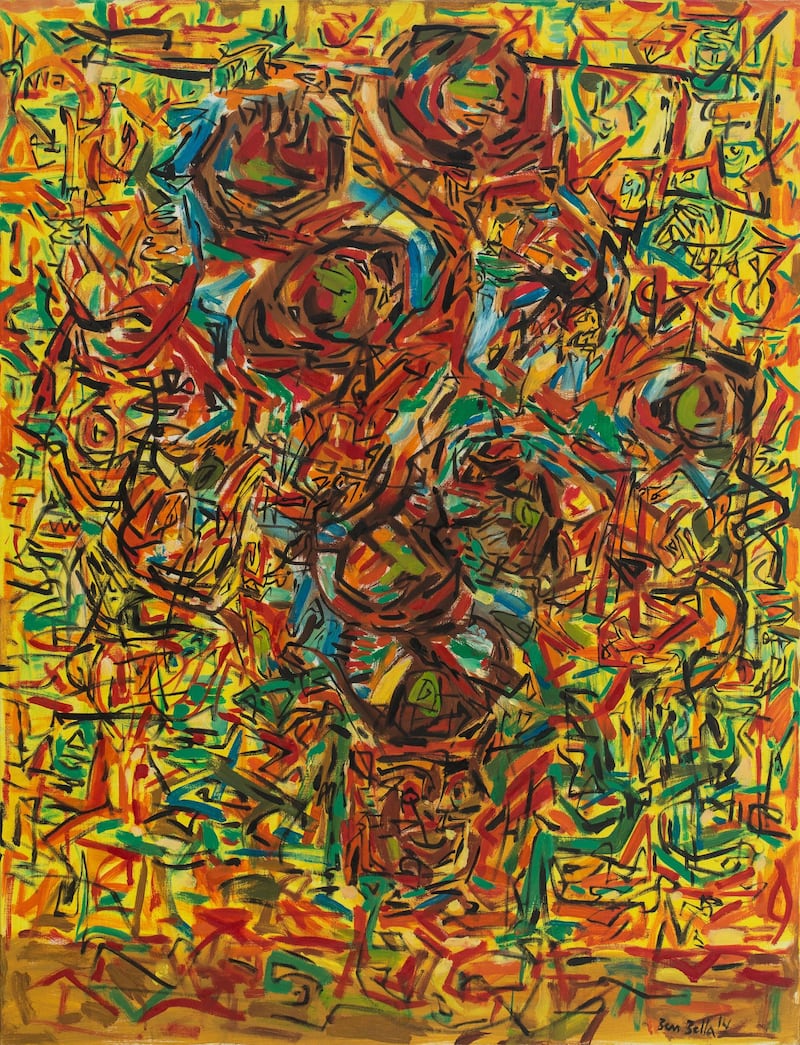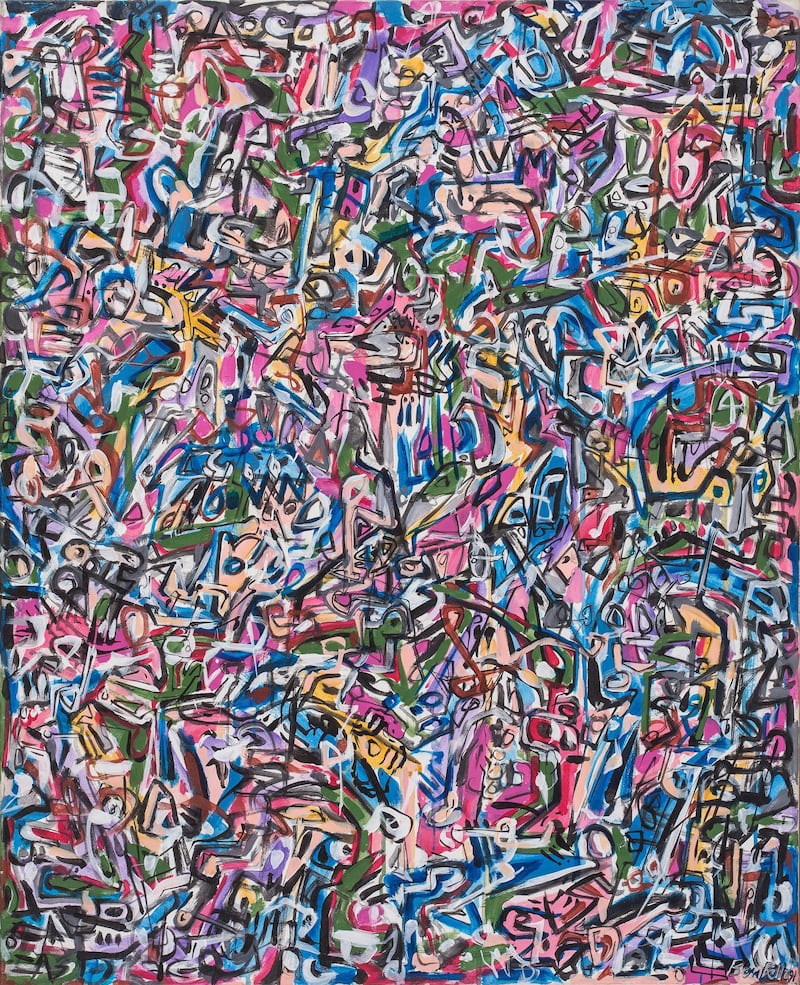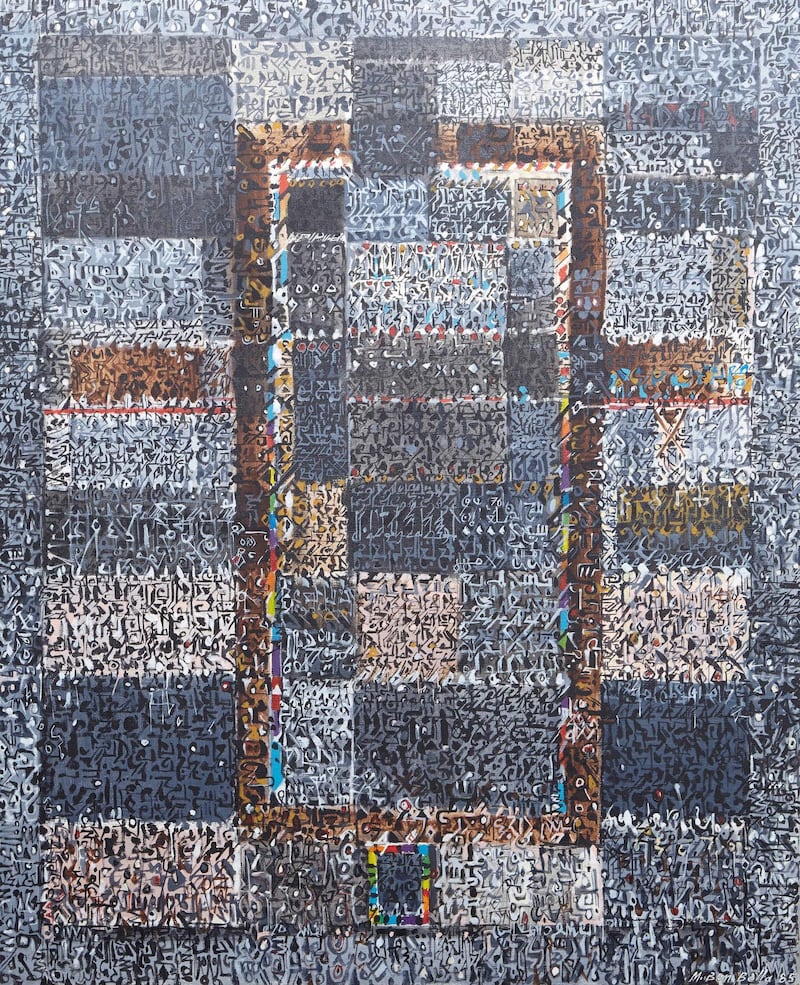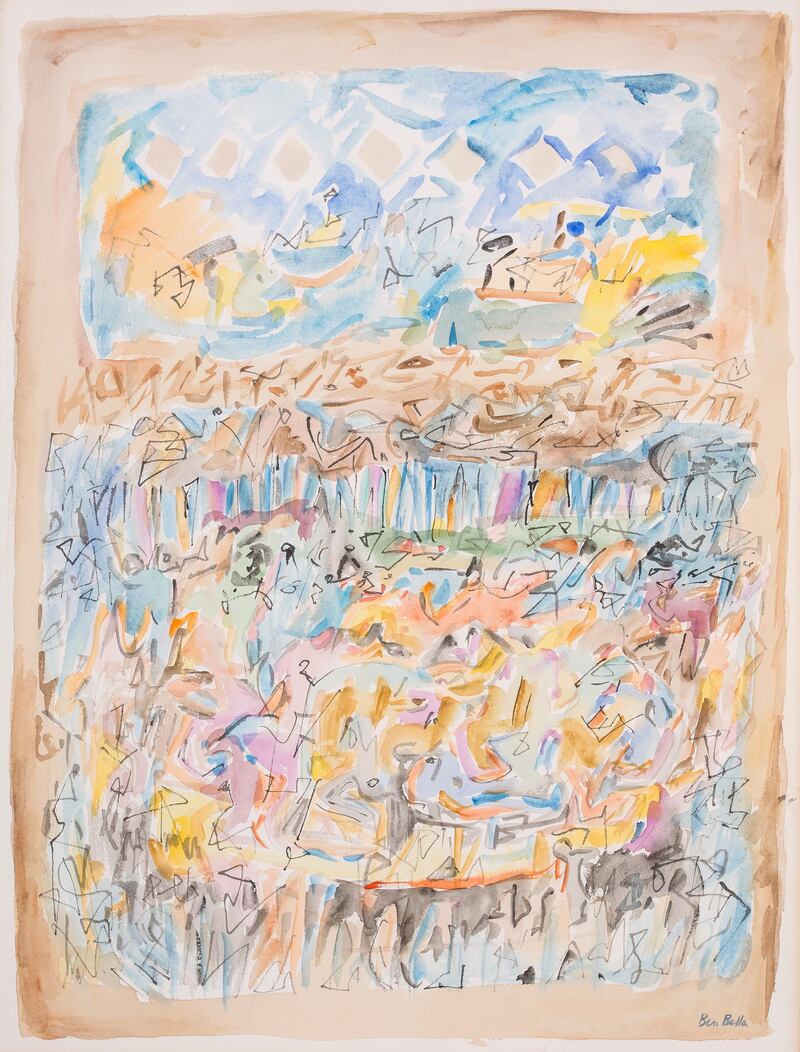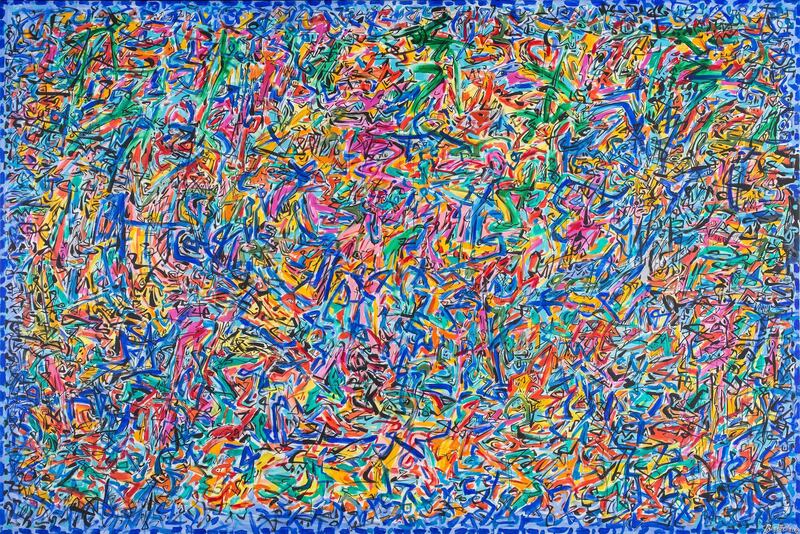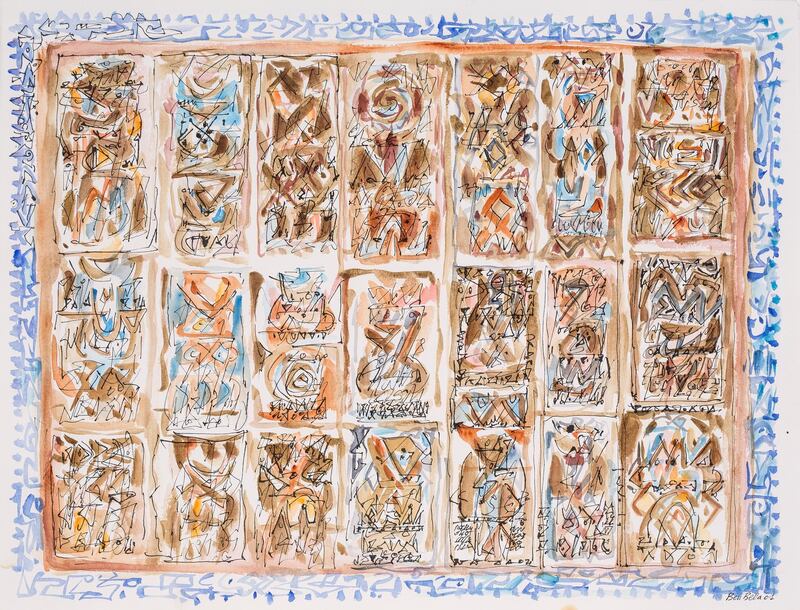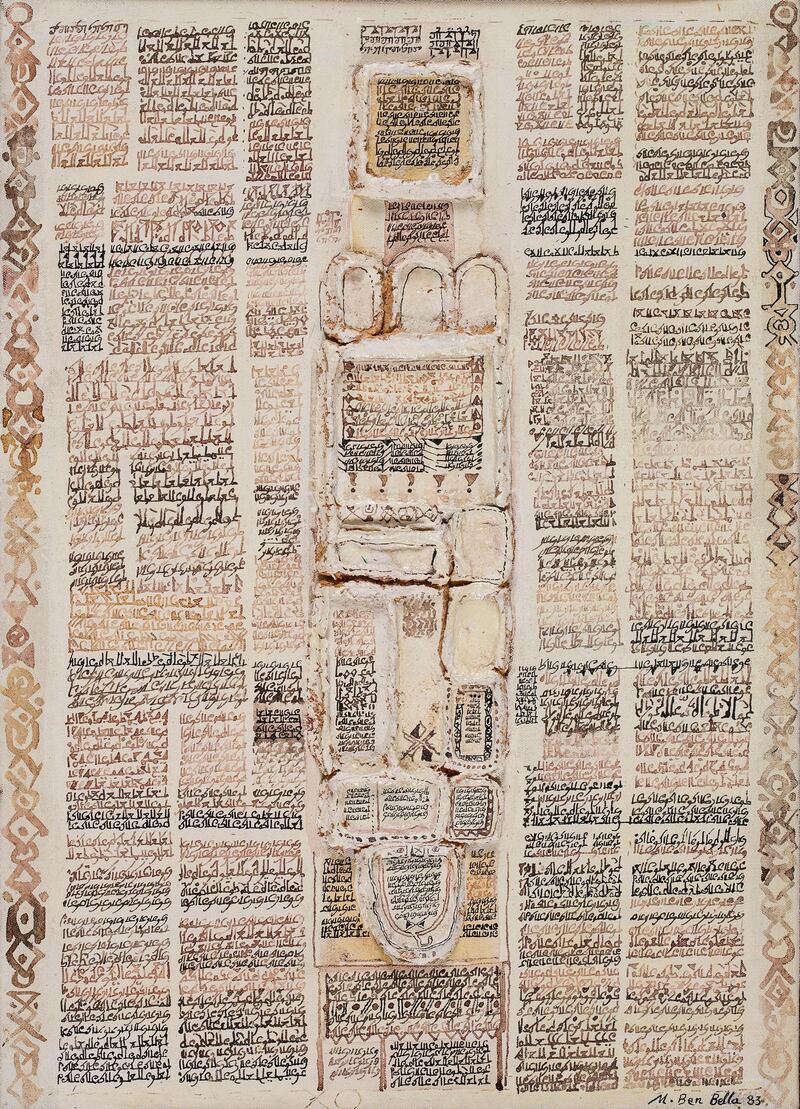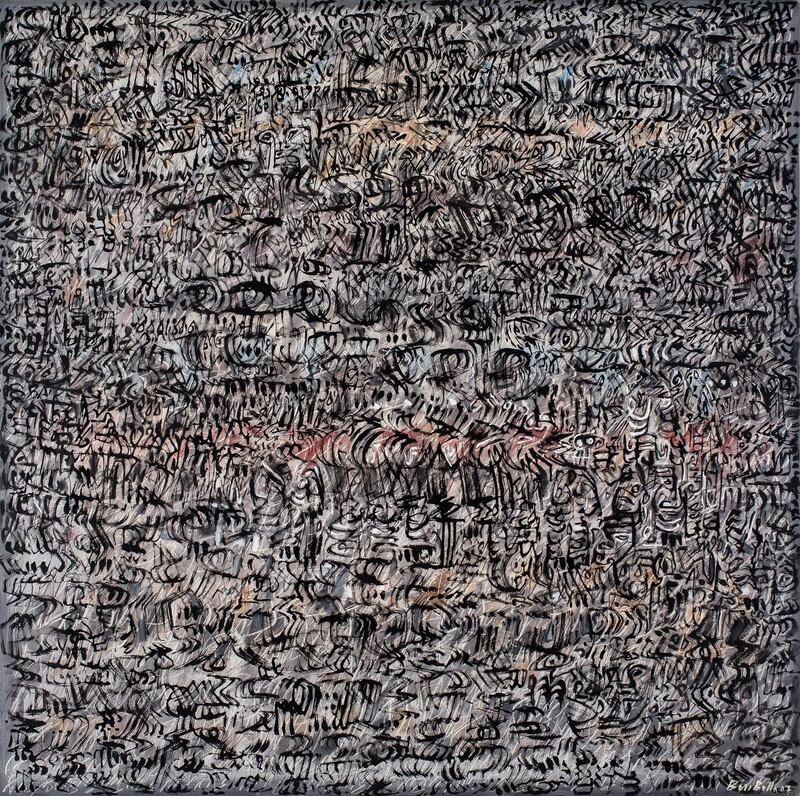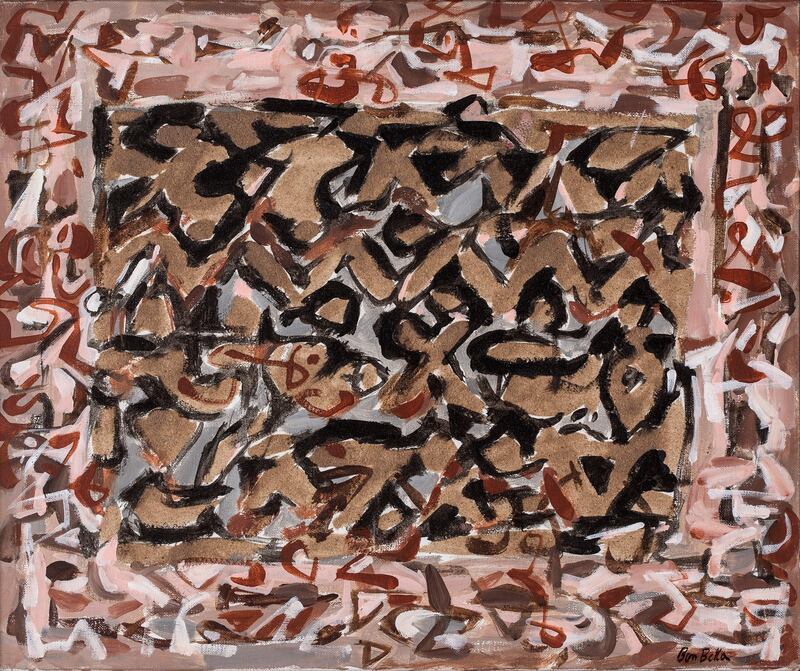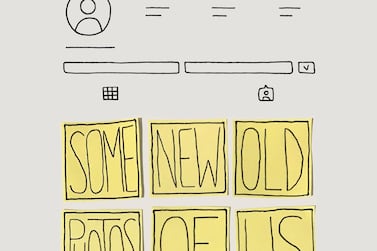Nadjib Ben Bella, son of the Algerian artist who died last month, shares with Myrna Ayad his father's process of releasing emotion through creative expression. This first-person account is based on their interview.
Amid blaring musical medleys that ranged from the ballads of Umm Kulthum to the compositions of Mozart and others, my father purged the memories of a tumultuous childhood on to his large, vibrant canvases. I knew that his demons came out at night and I could not help but admire his aptitude at transforming negative energy into brilliant artworks.
That way, he created an equilibrium, both in his psyche and his art. A nocturnal creature, his bad dreams deterred him from enough sleep. It was clear to my mother, sister and me that my father had something he needed to release. It was evident in the strength that emanated from his paintings. They radiated with a power that is undeniable.
My father spent his formative years in Maghnia and Oran, Algeria, where some of his happiest memories were made. In 1960, the family fled during the war and took refuge in Oujda, in Morocco. Sometimes, my father would share a few heartrending memories with us – fleeing the French army, the sounds of the bombs, escaping to Morocco on foot. He would often say that when you experience war, it stays with you forever. The move was traumatic, the family became impoverished and my father’s recollections from that time were desolate.
Two years later, they returned to Oran and, ironically, it was his French art teachers at the Ecole des Beaux-Arts d’Oran that recognised his talent and invited him to France to further his studies. And so, he did, at age 19, in 1964. A year later, his uncle, Ahmed Ben Bella, the first president of independent Algeria, was deposed, jailed until 1979 and then put under house arrest.
In France, my father struggled to differentiate his politicised surname and considered changing it. Perhaps what pained him the most was not being allowed to return to Algeria; it really saddened him that the Ben Bella name, long associated with liberation and nationalism, became a curse for some time and forbade his family from visiting their home. “The Ben Bella family has always been fighting to liberate the country,” he would say to us so proudly. “Algeria is your country; your entire family has been fighting for it for years. It is yours, even if you were born in France.”
When we were finally allowed to visit, he took us to his school in Oran and we spent wonderful summers with my paternal grandmother at her home, where my father produced incredible drawings.
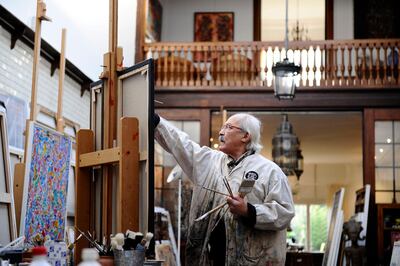
Amazingly, though he lived in France more than in his beloved Algeria, his homeland remained his nucleus; forever the focal point that he would return to. All the memories wrapped within Algeria’s lush nature, its vibrant colours, its stretch of Mediterranean Sea, the background music of the nai (a flute) and the distinct aromas of rich spices came to have the most significant effect on his work. And yet, with a past so dark, he found painting (or I wonder, did painting find him?) and it was how he articulated his feelings. My father’s paintings are his greatest form of expression. He would reiterate time and again that his work is experiential, emotive and organic.
I never really thought about his art, I guess, because I experienced it directly. Also, it was everywhere, even in my bedroom. His studio was embedded into our home. Looking at his paintings, I would say he was constantly dreaming of Algeria; though these are images of someone residing in France, they are a phantasma of somewhere else. In a way, he was a Sufist, because of the repetition and continuity in his painting.
Scroll through 11 beautiful works by the late artist:
He definitely believed in his art and in working hard, and advised me to work 10 times harder than others. “Work is very important,” he would say. “Take the time to do what you want, but remember, you must work.” I then became a musician with a hectic travel schedule, which would worry him a great deal.
In the past decade, I spent a lot of time with my parents and felt compelled to document my father's work. I went through years and years of his paintings, archiving and, more importantly, getting direct explanations from him about series or pieces. He had created a brilliant tradition; on each birthday, we chose an artwork by him. In retrospect, I understand what he was doing – he was teaching us about ourselves and how to look at art. In surveying this collection that I have amassed all these years, I am able to recall memories that narrate a visual diary. He was so tender and protective and just wanted us to be happy. He always told me that I was his best friend.
Like anyone with an artist parent, I don’t think my father received the recognition he deserved. There could have been more – shows at major museums or a foundation to honour his legacy.
I guess that is our job now.
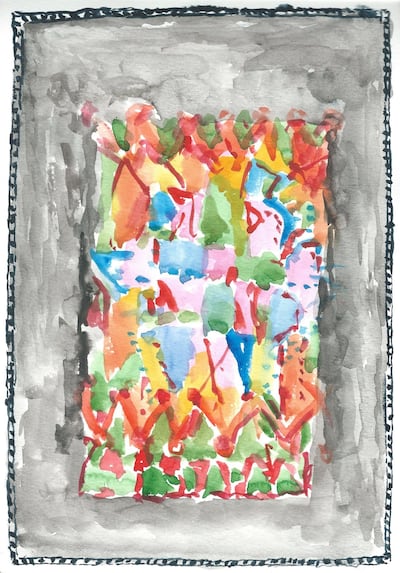
My father wholeheartedly believed in legacy and, for the longest time, had been asking me for a grandchild. When he was diagnosed with cancer, he tried matchmaking me with the nurses at the hospital. Even then, his positive spirit prevailed and, up until the very end, he was upbeat. He was so eager to make more art and wanted to explore ceramics, carpets and engravings.
I finally met and married a wonderful woman, and when I told my father that he was going to be a grandparent, he said that all the work he had done can be passed on to his grandchild. “Now,” he said, “no more travelling for you.” Our son was born on May 15, my father chose his name, Jamil, and met him once. “This is the best gift of my life,” he said. “Now I can go.” And he did.
We found some drawings at the hospital and the last one is quite telling: Algeria’s sea and sun are in the centre, so colourful and happy, but they are framed by the grey rain of the north of France. It summarises his life perfectly.
Remembering the Artist is a monthly series that features artists from the region
